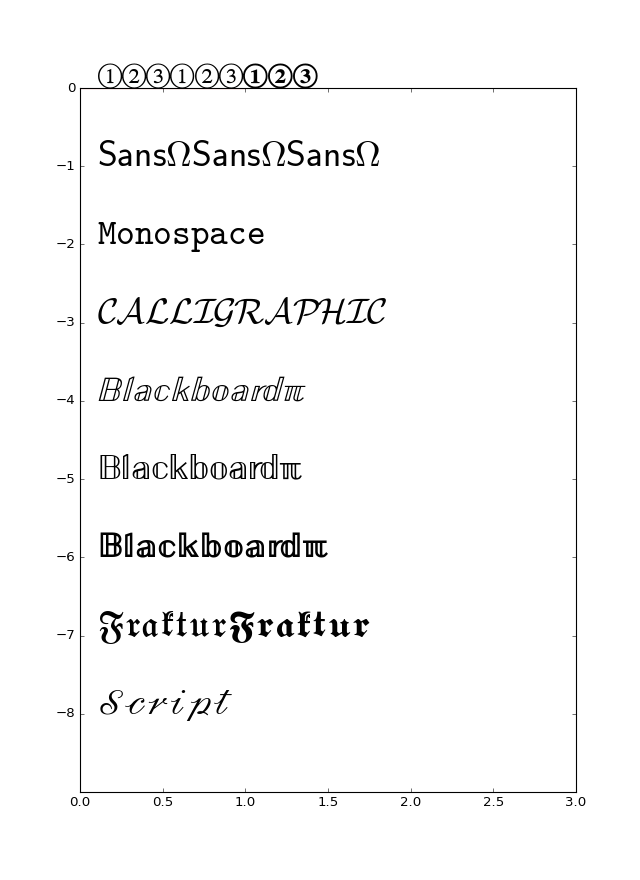Learn what to expect in the new updates


from __future__ import unicode_literals
import os
import sys
import re
import gc
import matplotlib.pyplot as plt
import numpy as np
stests = [
r'$\mathcircled{123} \mathrm{\mathcircled{123}}'
r' \mathbf{\mathcircled{123}}$',
r'$\mathsf{Sans \Omega} \mathrm{\mathsf{Sans \Omega}}'
r' \mathbf{\mathsf{Sans \Omega}}$',
r'$\mathtt{Monospace}$',
r'$\mathcal{CALLIGRAPHIC}$',
r'$\mathbb{Blackboard \pi}$',
r'$\mathrm{\mathbb{Blackboard \pi}}$',
r'$\mathbf{\mathbb{Blackboard \pi}}$',
r'$\mathfrak{Fraktur} \mathbf{\mathfrak{Fraktur}}$',
r'$\mathscr{Script}$']
if sys.maxunicode > 0xffff:
s = r'Direct Unicode: $\u23ce \mathrm{\ue0f2 \U0001D538}$'
def doall():
tests = stests
plt.figure(figsize=(8, (len(tests) * 1) + 2))
plt.plot([0, 0], 'r')
plt.grid(False)
plt.axis([0, 3, -len(tests), 0])
plt.yticks(np.arange(len(tests)) * -1)
for i, s in enumerate(tests):
plt.text(0.1, -i, s, fontsize=32)
plt.savefig('stix_fonts_example')
plt.show()
if '--latex' in sys.argv:
fd = open("stix_fonts_examples.ltx", "w")
fd.write("\\documentclass{article}\n")
fd.write("\\begin{document}\n")
fd.write("\\begin{enumerate}\n")
for i, s in enumerate(stests):
s = re.sub(r"(?<!\\)\$", "$$", s)
fd.write("\\item %s\n" % s)
fd.write("\\end{enumerate}\n")
fd.write("\\end{document}\n")
fd.close()
os.system("pdflatex stix_fonts_examples.ltx")
else:
doall()
Keywords: python, matplotlib, pylab, example, codex (see Search examples)